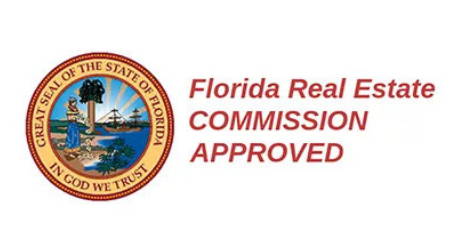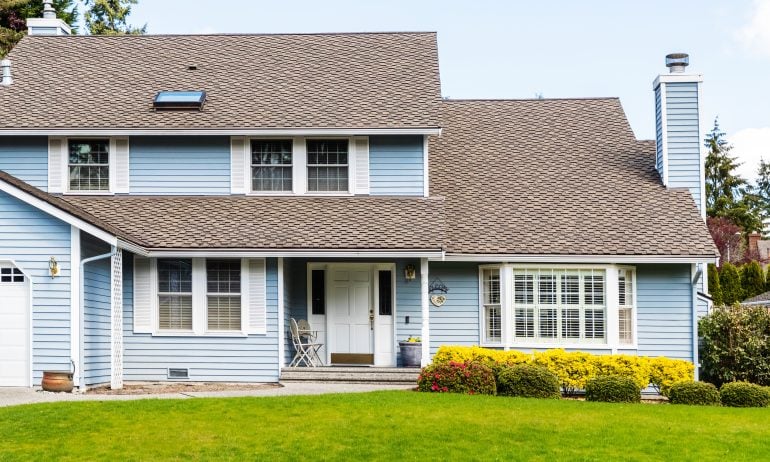
Books on becoming a real estate agent are important tools for anyone looking to build a business in this lucrative field. These books are great for helping you create your vision, form a solid mind-set, and help you stay focused when the going gets tough.
Real Estate Agent Books for Beginners
Start with a book to get up to speed in the real estate world if you are new. Before you read any other real estate books, make sure that you are familiar with the basics.
The Honest Real Estate Agent by Mario Jannatpour is a popular real estate book that covers a variety of topics in a concise and easy-to-read manner. The author provides a wealth of information on everything from how to make the most of your time in the field to dealing with difficult clients and how to get your name out there.

Best Real Estate Books for New Agents
One of the biggest mistakes that new agents make involves putting their entire effort into building their company and ignoring their career goals. This book helps you to refocus your goals and set priorities by helping you create a successful sales plan.
This is a book that every aspiring agent or broker should read. This book is full of useful tips and tricks to help you gain more clients, sell your properties and become a more effective real estate agent.
You'll also learn a lot more about the market for real estate and what you can expect in the near future. The authors explain how to navigate a changing market and what steps to take to prepare your business for the future.
Real Estate Investing By Brandon Turner And Josh Dorkin Is Another Great Book For Beginners In The Real Estate Investing Space. The book doesn't offer a single strategy, but helps you to understand all the options available and what will work best for you.

Rod Santomassimo's The Dominators is another book which focuses on traits that make certain brokers so dominant in the market. This text breaks down three character profiles that are essential to a successful broker: the young guns, the dominators, and the game changers.
Knowing how to react to a booming real estate industry is crucial. It can be the difference in a successful or a failed business.
If you're ready to start taking your real estate career to the next level, check out these books for real estate license prep and a step-by-step guide to building a business. Learn the basics of real-estate law and create a powerful plan to reach your goals.
FAQ
What should I consider when investing my money in real estate
You must first ensure you have enough funds to invest in property. If you don’t have the money to invest in real estate, you can borrow money from a bank. Also, you need to make sure you don't get into debt. If you default on the loan, you won't be able to repay it.
You also need to make sure that you know how much you can spend on an investment property each month. This amount should include mortgage payments, taxes, insurance and maintenance costs.
Finally, ensure the safety of your area before you buy an investment property. It would be best to look at properties while you are away.
How can I find out if my house sells for a fair price?
If your asking price is too low, it may be because you aren't pricing your home correctly. You may not get enough interest in the home if your asking price is lower than the market value. To learn more about current market conditions, you can download our free Home Value Report.
What's the time frame to get a loan approved?
It all depends on your credit score, income level, and type of loan. Generally speaking, it takes around 30 days to get a mortgage approved.
How do I calculate my rate of interest?
Market conditions affect the rate of interest. The average interest rates for the last week were 4.39%. Add the number of years that you plan to finance to get your interest rates. If you finance $200,000 for 20 years at 5% annually, your interest rate would be 0.05 x 20 1.1%. This equals ten basis point.
Should I use an mortgage broker?
Consider a mortgage broker if you want to get a better rate. Brokers are able to work with multiple lenders and help you negotiate the best rate. Brokers may receive commissions from lenders. You should check out all the fees associated with a particular broker before signing up.
Can I buy a house in my own money?
Yes! Yes! There are many programs that make it possible for people with low incomes to buy a house. These programs include FHA, VA loans or USDA loans as well conventional mortgages. You can find more information on our website.
Statistics
- Based on your credit scores and other financial details, your lender offers you a 3.5% interest rate on loan. (investopedia.com)
- Over the past year, mortgage rates have hovered between 3.9 and 4.5 percent—a less significant increase. (fortunebuilders.com)
- This seems to be a more popular trend as the U.S. Census Bureau reports the homeownership rate was around 65% last year. (fortunebuilders.com)
- When it came to buying a home in 2015, experts predicted that mortgage rates would surpass five percent, yet interest rates remained below four percent. (fortunebuilders.com)
- Some experts hypothesize that rates will hit five percent by the second half of 2018, but there has been no official confirmation one way or the other. (fortunebuilders.com)
External Links
How To
How to Manage a Property Rental
Renting your home can be a great way to make extra money, but there's a lot to think about before you start. We will show you how to manage a rental home, and what you should consider before you rent it.
Here are the basics to help you start thinking about renting out a home.
-
What factors should I first consider? Before you decide if your house should be rented out, you need to examine your finances. If you have any debts such as credit card or mortgage bills, you might not be able pay for someone to live in the home while you are away. Also, you should review your budget to see if there is enough money to pay your monthly expenses (rent and utilities, insurance, etc. It may not be worth it.
-
How much does it cost to rent my home? There are many factors that influence the price you might charge for renting out your home. These include factors such as location, size, condition, and season. Keep in mind that prices will vary depending upon where you live. So don't expect to find the same price everywhere. Rightmove has found that the average rent price for a London one-bedroom apartment is PS1,400 per mo. This would translate into a total of PS2,800 per calendar year if you rented your entire home. This is a good amount, but you might make significantly less if you let only a portion of your home.
-
Is it worthwhile? Doing something new always comes with risks, but if it brings in extra income, why wouldn't you try it? Before you sign anything, though, make sure you understand exactly what you're getting yourself into. It's not enough to be able to spend more time with your loved ones. You'll need to manage maintenance costs, repair and clean up the house. Before you sign up, make sure to thoroughly consider all of these points.
-
Is there any benefit? Now that you have an idea of the cost to rent your home, and are confident it is worth it, it is time to consider the benefits. Renting your home is a great way to get out of the grind and enjoy some peace from your day. It's more fun than working every day, regardless of what you choose. If you plan ahead, rent could be your full-time job.
-
How do I find tenants? Once you've decided that you want to rent out, you'll need to advertise your property properly. Online listing sites such as Rightmove, Zoopla, and Zoopla are good options. Once you receive contact from potential tenants, it's time to set up an interview. This will help to assess their suitability for your home and confirm that they are financially stable.
-
What can I do to make sure my home is protected? If you are worried about your home being empty, it is important to make sure you have adequate protection against fire, theft, and damage. Your landlord will require you to insure your house. You can also do this directly with an insurance company. Your landlord will likely require you to add them on as additional insured. This is to ensure that your property is covered for any damages you cause. This doesn't apply to if you live abroad or if the landlord isn’t registered with UK insurances. You will need to register with an International Insurer in this instance.
-
Even if your job is outside the home, you might feel you cannot afford to spend too much time looking for tenants. You must put your best foot forward when advertising property. You should create a professional-looking website and post ads online, including in local newspapers and magazines. It is also necessary to create a complete application form and give references. Some people prefer to do everything themselves while others hire agents who will take care of all the details. Interviews will require you to be prepared for any questions.
-
What should I do after I have found my tenant? If you have a current lease in place you'll need inform your tenant about changes, such moving dates. If you don't have a lease, you can negotiate length of stay, deposit, or other details. Remember that even though you will be paid at the end of your tenancy, you still have to pay utilities.
-
How do I collect my rent? You will need to verify that your tenant has actually paid the rent when it comes time to collect it. You'll need remind them about their obligations if they have not. After sending them a final statement, you can deduct any outstanding rent payments. If you are having difficulty finding your tenant, you can always contact the police. They will not normally expel someone unless there has been a breach of contract. However, they can issue warrants if necessary.
-
How can I avoid problems? It can be very lucrative to rent out your home, but it is important to protect yourself. Install smoke alarms, carbon monoxide detectors, and security cameras. Check with your neighbors to make sure that you are allowed to leave your property open at night. Also ensure that you have sufficient insurance. You must also make sure that strangers are not allowed to enter your house, even when they claim they're moving in the next door.